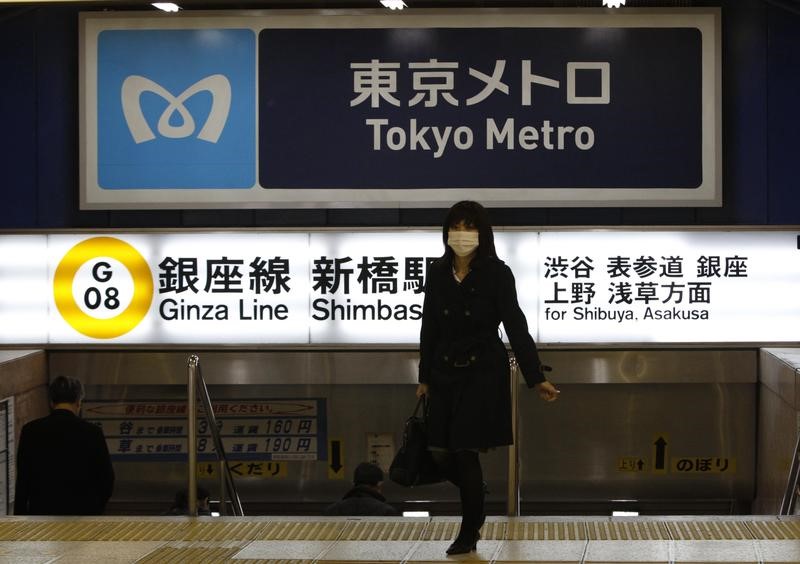(Bloomberg) -- Japan’s key inflation measure weakened last month in another sign that Japan’s price dynamics are at odds with a global trend of rapid acceleration that is prompting central bank action overseas.
Growth in consumer prices excluding fresh food slowed to 0.2% in January from a year earlier, compared with 0.5% in the previous month, according to the ministry of internal affairs Friday.
Economists had expected a gain of 0.3% as an earlier boost from higher hotel charges largely dropped out of the calculations.
The dent in price gains underscores Japan’s status as an outlier amid global inflationary pressures and could cool recent speculation that the Bank of Japan might consider adjusting policy even before Governor Haruhiko Kuroda finishes his term next year.
The BOJ chief has repeatedly reiterated his view that there is no need to discuss normalizing policy with prices still so distant from a 2% target.
The central bank underlined its commitment to stick with its stimulus framework earlier this week when it offered to buy government bonds at a fixed rate to keep yields below a ceiling.
Still, the speculation of possible changes is likely to rumble on as other central banks make hawkish pivots in their policy direction.
Prices in Japan are also expected to jump in April when the impact of slashed phone fees fades out of index, another factor that will likely keep market players chattering.
What Bloomberg Economics Says...
“We expect core inflation to pick up slightly in February. Elevated energy prices and a weaker yen are likely to support the core inflation gauge.”
-- Asia Economist Team
Click here to read the full report.
The release showed that energy costs contributed 1.2 percentage point to overall prices, an indication of how important climbing oil markets have been in driving up Japan’s inflation readings. Oil prices hit their highest since 2014 this week.
Gains in hotel fees, a key price booster in recent months, eased to less than 1% in January, sapping overall momentum. Accommodation costs had been surging due to year-earlier comparisons with a period when government-initiated discounts for the travel industry were still in effect.
Last year’s sharp cuts to mobile phone fees continued to push down the overall index by around 1.5 percentage point.
Yoshiki Shinke, chief economist at Dai-Ichi Life Research Institute, is among an increasing number of economists seeing a good chance of the price data hitting the BOJ’s price target this spring and hovering around that level to fuel market expectations of an unwinding of stimulus.
Kuroda has said the central bank is looking for sustainable inflation backed by wage growth, a combination needed to overcome an entrenched deflationary mindset.
The dislike of price increases among companies and consumers was illustrated this week by a big supermarket chain dropping the products of a diaper maker because it had pushed up its prices.
(Adds more details from the release)
©2022 Bloomberg L.P.
